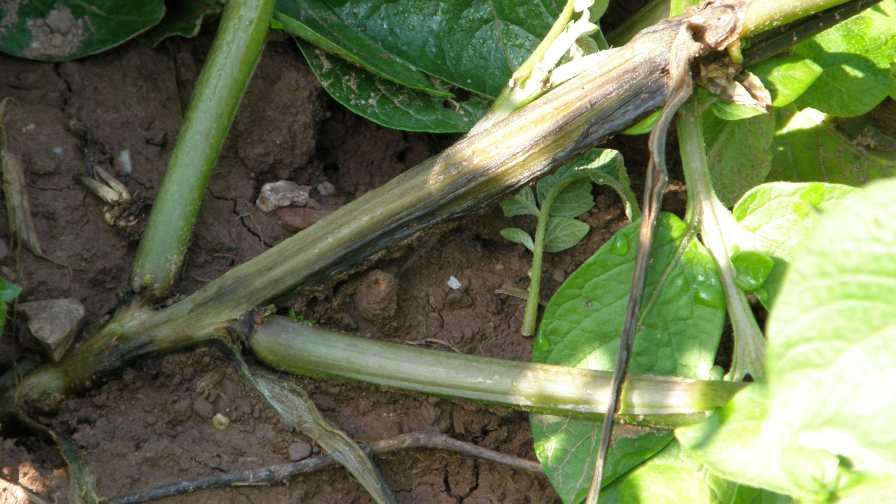Two bacteria threatening the potato industry worldwide is the focus of the 2017 Dickeya and Pectobacterium Summit Nov. 9 in Bangor, Maine, convened by the University of Maine.
Plant pathologists, researchers and scientists from The Netherlands, Scotland and five U.S. states will present the latest information on the bacteria — Dickeya and Pectobacterium — that cause blackleg disease, an emerging potato seed problem.
The Potato Disease Summit, which goes from 8 a.m. to 5 p.m. on Nov. 9 at the Cross Insurance Center, 515 Main St., Bangor, Maine, is designed for scientists, consultants, regulatory officials, and potato seed growers and buyers. It will focus on such topics as current advances in detection and diagnosis of Dickeya; an overview of Pectobacterium in the U.S.; and management of Enterobacteriaceae spread and risk. In addition, delegates will hear:
- Scottish scientists recommended regulating Dickeya dianthicola as A2 quarantine pest and a zero tolerance for all Dickeya spp. on potatoes in Scotland.
- Changes in the dormant tuber tests have increased Dickeya recovery (reduced the false negatives).
- A new Pectobacterium species reported from Maine that affects plants in the field and tubers in storage.
- The latest information on transfer Dickeya during seed cutting.
In the past three growing seasons, Dickeya, a bacterial pathogen of potatoes, has caused significant economic losses in seed non-emergence and crop loss nationwide. In addition, an associated pathogen, Pectobacterium, has caused potato crop losses in the field and in storage. The bacteria have caused losses to the potato industry in Europe for an even longer period.
The US$80 per person fee includes materials, lunch and breaks. Pre-registration closes Oct. 20.











